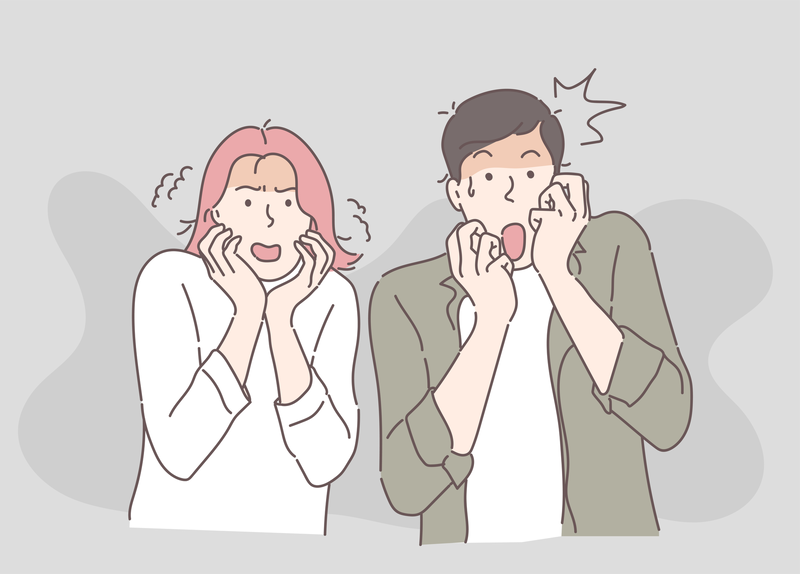5 Types of Psychological Trauma According to Lise Bourbeau
The traumas that develop in childhood from the relationship with parents lead us to treat any future personal connection in a specific manner, so that it protects us from being harmed in the same way we have previously been. Relationships become a kind of self-preservation, with the primary purpose of not maintaining intimate touch and bringing the relationship to a state of mutual enjoyment, but rather preventing being emotionally hurt again. Lise Bourbeau identified 5 psychological traumas that may negatively define how we build our relationships.
1.Trauma of Rejection
The individual who suffered this trauma feels that he/she doesn’t deserve to live. It could be a child who was rejected by a parent, such as when the pregnancy was unexpected and unwanted; when the parents or one parent desired a child of another gender; or when parents acted hostilely toward the child for some other reason. The parents must have felt that the child interfered with their lives. The family then showed to that child that he did not belong there. As a result, when the child is rejected, it makes him/her wear a “Fugitive” mask. In their relationships they tend to run away. Such a child is unsure of him/herself, feels uneasy in large groups, is constantly silent, and wants to vanish as fast as possible. People who suffered this trauma lower the bar in relationships; they tend to date someone who doesn’t like them. But overall, they tend to run away from any significant relationships or genuine feelings that might accompany them. Another hallmark of fugitives is their drive for excellence in whatever they do. These people either excel at everything and prove themselves worthy of loving and living, or they tend to keep a low profile altogether, being as inconspicuous as possible.
2. Trauma of Abandonment
This kind of trauma stems from the parent not paying attention to the child: not showing care and affection. As a result, a person suffering from the trauma of abandonment feels persistent emotional hunger and seeks to “cling” to another person to satisfy this need. This leads to dependent relationships and may lead to the development of other harmful addictions later in life. A child who suffered from this trauma did not get enough positive reinforcement when it was critical, so they started to feel they could not do anything on their own, without the help of others. They now feel lost without words of approval and counsel, which they fail to find.
Because he/she lacks confidence in their talents, the most important thing for them is to have someone close whom they can trust. They are lucky if they find someone who loves them unconditionally, but often they just settle for anybody who would not abandon them, and it is usually a person with the same trauma.
Since they have not had a positive example of someone showing and working through genuine feelings, they don’t know how to manage their emotions: they get upset about little matters, sob easily, or may laugh and then become sad again. Such a person is often distrustful because him/her feels they will be abandoned again sooner or later by the people they love. Loneliness terrifies them, and they might fight it with addiction or unhealthy dependency.
3. Trauma of Humiliation
When a child is being humiliated in his family and later in school and everywhere he goes, he/she may develop the trauma of humiliation. It may happen when the child is constantly subjected to insults, criticism, and harsh judgment, especially if the talk takes place in front of strangers. If the parents criticize the child, they instill guilt and shame in him/her. The child interprets their insults as if he is not good enough. Such person may then go on and develops the mask of the “Masochist.” This means that the person will unconsciously seek out issues, situations, and relationships where they are humiliated all over again and suffer as they used to in childhood. Masochists frequently have good intentions and are eager to assist others; however, they sacrifice themselves and their own well-being. They make an effort to help everyone, to solve problems for them, to recommend things, and to point out the usefulness. They appear to be compassionate because they willingly participate in other people’s affairs, but their actions are often driven by a fear of embarrassment in front of others and themselves. They are willing to go to any length to avoid being condemned and, instead, to be appreciated. People who wear the mask of “masochists” rarely relax and take it easy in a relationship and do not allow themselves to just love and be loved. It is difficult for them to recognize and declare their own needs.
4. Trauma of Betrayal
When a child’s expectations are repeatedly not met, they may develop this trauma. Every time the parent does not follow through on his promise, favors someone else over the child or exploits the child’s trust, the youngster feels betrayed. The parent never apologizes for it, and when cornered, he may turn hostile against the child. It can be the parent’s promise of love and affection that never materializes, even at an early pre-verbal age. The parent may be busy all the time or loving but absent.There is a lack of communication, especially non-verbal, between the parent and the child, and the child is perplexed, having the loving figure near but not feeling their love and warmth. At a critical age when parents are the only link to the outside world, the child believes he or she cannot trust their parents with anything and must do everything themselves. The child stops trusting and develops the mask of “Control”. The child relies only on him/herself and believes that if he/she can control everything, it will protect him/her from being betrayed. These people frequently develop an anxious personality, anticipating bad things in order to avoid them and, thus, another betrayal in their lives. They rarely listen to others and do what they want, yet they may expect others to rigidly follow their instructions.
5. Trauma of Injustice
A child may develop the trauma of injustice if he is not treated fairly by his/her parents. He could be treated harshly for his mistakes, and his accomplishments were never good enough in the eyes of his parents. Such a child is not recognized for who he is, but rather for who he may become one day. The child subsequently develops the mask of “Rigidity” and is prone to perfectionism. He/she believes that the quality of feelings and love connection can be substituted with the quantity of things they they achieve. They expect a lot from themselves, and anything less than perfect is unacceptable to them. Such people are not sensitive towards themselves, they value actions and results above feelings. People who suffered from the trauma of injustice are seeking justice as a universal equalizer. They rely on a rigid concept of how things should be and how the world is made, and they are driven by it. Therefore, they might be prone to judging others. They find it difficult to feel satisfied, even though their achievements are often high.



